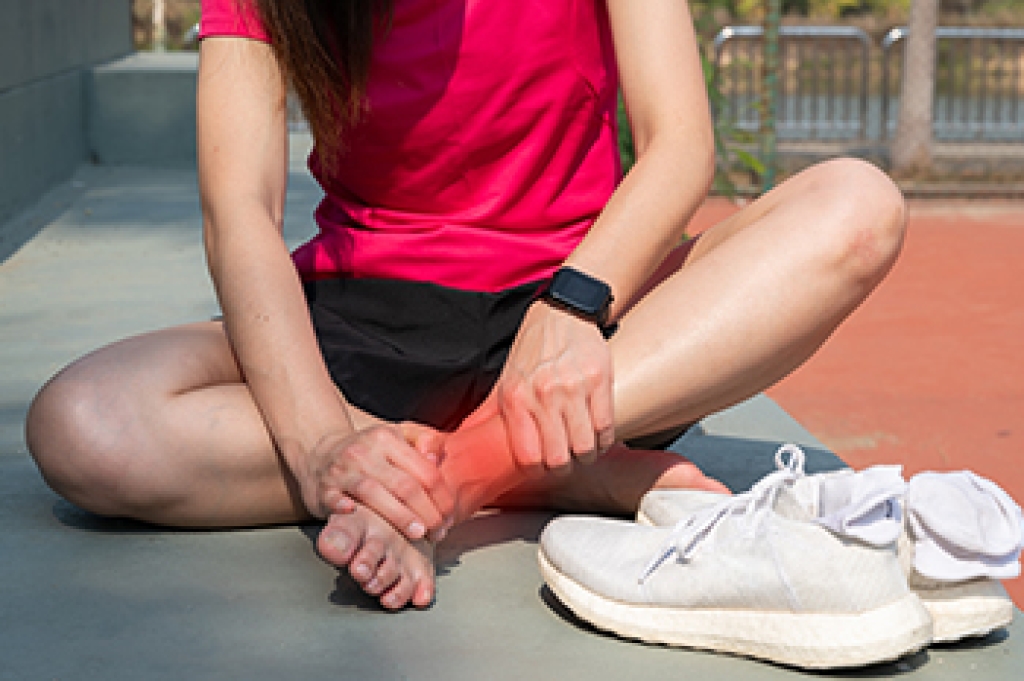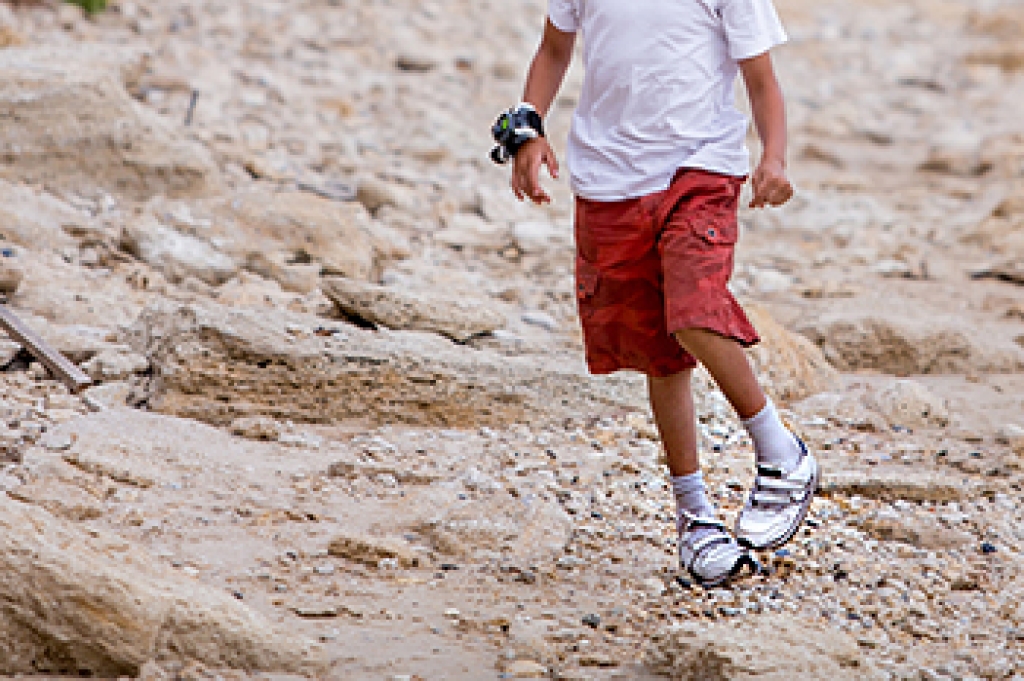
A high ankle sprain is an injury to the ligaments that connect the two lower leg bones above the ankle joint. It often involves the syndesmosis, a joint where two bones are connected by strong ligaments rather than by a typical moving joint capsule. It occurs when the foot is forced outward or twisted while the leg remains stable, commonly during sports or sudden directional changes. Symptoms include significant pain above the ankle, swelling, bruising, discoloration, and difficulty bearing weight. A severe sprain may cause instability and prolonged discomfort if not properly treated. Diagnosis is made through physical examination and imaging studies to assess ligament damage. A podiatrist can provide an accurate diagnosis, recommend bracing or rehabilitation, and guide recovery. If you have sprained your ankle, it is suggested that you consult a podiatrist who can offer effective relief and treatment solutions.
Ankle sprains are common but need immediate attention. If you need your feet checked, contact Glenn Aufseeser, DPM from Lakewood Foot and Ankle Specialists. Our doctor can provide the care you need to keep you pain-free and on your feet.
How Does an Ankle Sprain Occur?
Ankle sprains take place when the ligaments in your ankle are torn or stretched beyond their limits. There are multiple ways that the ankle can become injured, including twisting or rolling over onto your ankle, putting undue stress on it, or causing trauma to the ankle itself.
What Are the Symptoms?
- Mild to moderate bruising
- Limited mobility
- Swelling
- Discoloration of the skin (depending on severity)
Preventing a Sprain
- Wearing appropriate shoes for the occasion
- Stretching before exercises and sports
- Knowing your limits
Treatment of a Sprain
Treatment of a sprain depends on the severity. Many times, people are told to rest and remain off their feet completely, while others are given an air cast. If the sprain is very severe, surgery may be required.
If you have suffered an ankle sprain previously, you may want to consider additional support such as a brace and regular exercises to strengthen the ankle.
If you have any questions please feel free to contact our offices located in Lakewood and Manchester Township, NJ . We offer the newest diagnostic tools and technology to treat your foot and ankle needs.




